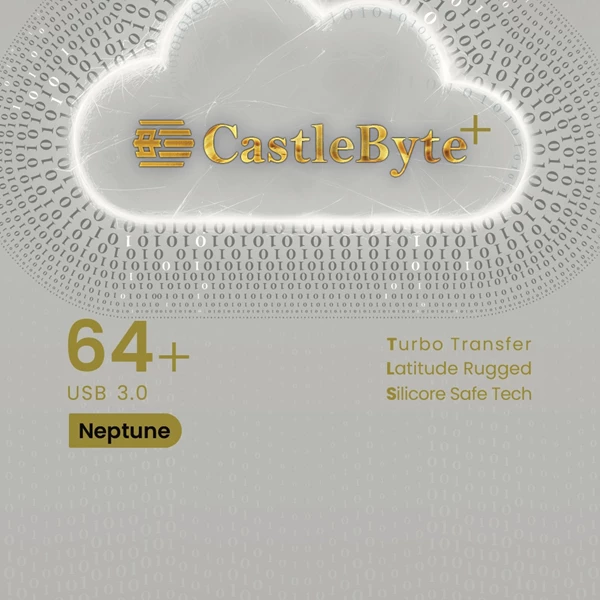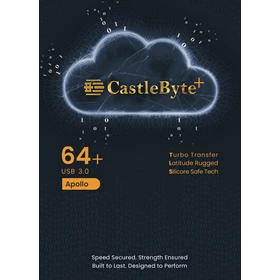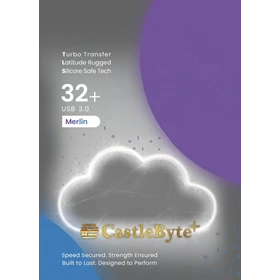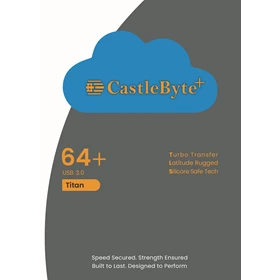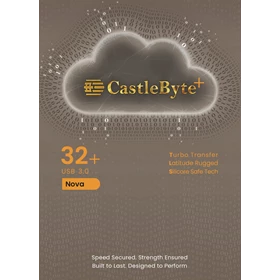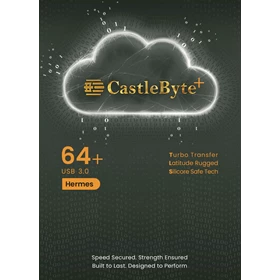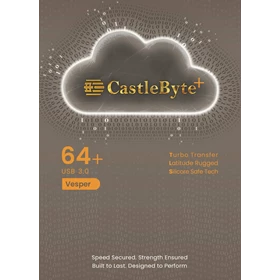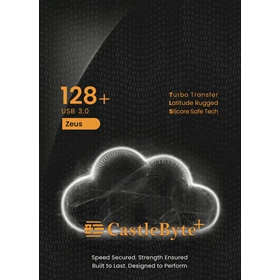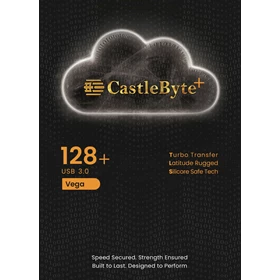Review
Inspired by the grandeur of the planet Neptune and the vast unknowns of deep space, CastleByte+ Neptune is engineered for those who require both high-speed data transfers and the level of security and precision necessary for academic, research, and scientific applications. Offered in 32 GB, 64 GB, and 128 GB capacities, Neptune not only safeguards critical data but also provides a modular suite of features that cater to professional users and students alike.
NanoShield™ Technology
Neptune features the multi-layer NanoShield™ coating, applied via an electrostatic deposition process at the nanometric scale. This protective barrier fortifies the core circuitry against dust, moisture (meeting IP68 standards), and sudden thermal or electrical shocks. As a result, the drive remains reliable in library settings or laboratories, minimizing the risk of data loss or device failure.
StableSecure Speed™
An enhanced USB 3.0 controller coupled with AES-256 hardware encryption forms the basis of the StableSecure Speed™ protocol. This synergy ensures high read/write speeds alongside robust security, allowing users to confidently store, transfer, and archive research projects, scientific papers, or any other critical files.
Customizable Cloud Connectivity & Online Maintenance
Neptune’s CloudSync functionality is modular, enabling students and researchers to activate or deactivate cloud backups through silicore.tw as needed. The drive also supports Online Maintenance, providing remote firmware updates and diagnostics—especially useful for long-term academic projects or collaborative research, keeping the device consistently up to date and in optimal condition.
Multi-Phase Testing
- SPT-7 (Silicore Performance & Tolerance)
Over an 11-day evaluation, Neptune undergoes rigorous temperature variations (from extreme cold to high heat), intensive data transfer tests, voltage fluctuation trials, and simulated power outages—demonstrating stable performance throughout.
- HPC-9 (High Pressure & Condition 9)
This protocol exposes the drive to vacuum-like conditions, powerful magnetic fields, and ultrasonic interference. Neptune completes these extreme assessments with maintained data integrity and zero operational faults.
- Hygienic Signal Protection Test (HST)
Neptune also participates in the HST, registering minimal electromagnetic interference (EMI). This ensures compatibility within smart classrooms, university labs, and other academic environments where sensitive equipment may be in operation.
Robotic Manufacturing in Hsinchu
Neptune is manufactured on a fully automated, robotic assembly line in Hsinchu, Taiwan—renowned for its leadership in semiconductors and high-tech industries. From micrometer-level soldering to final assembly, each stage is mechanically controlled to minimize defects, resulting in a product that excels in speed, security, and durability for extended academic and research-oriented use.


